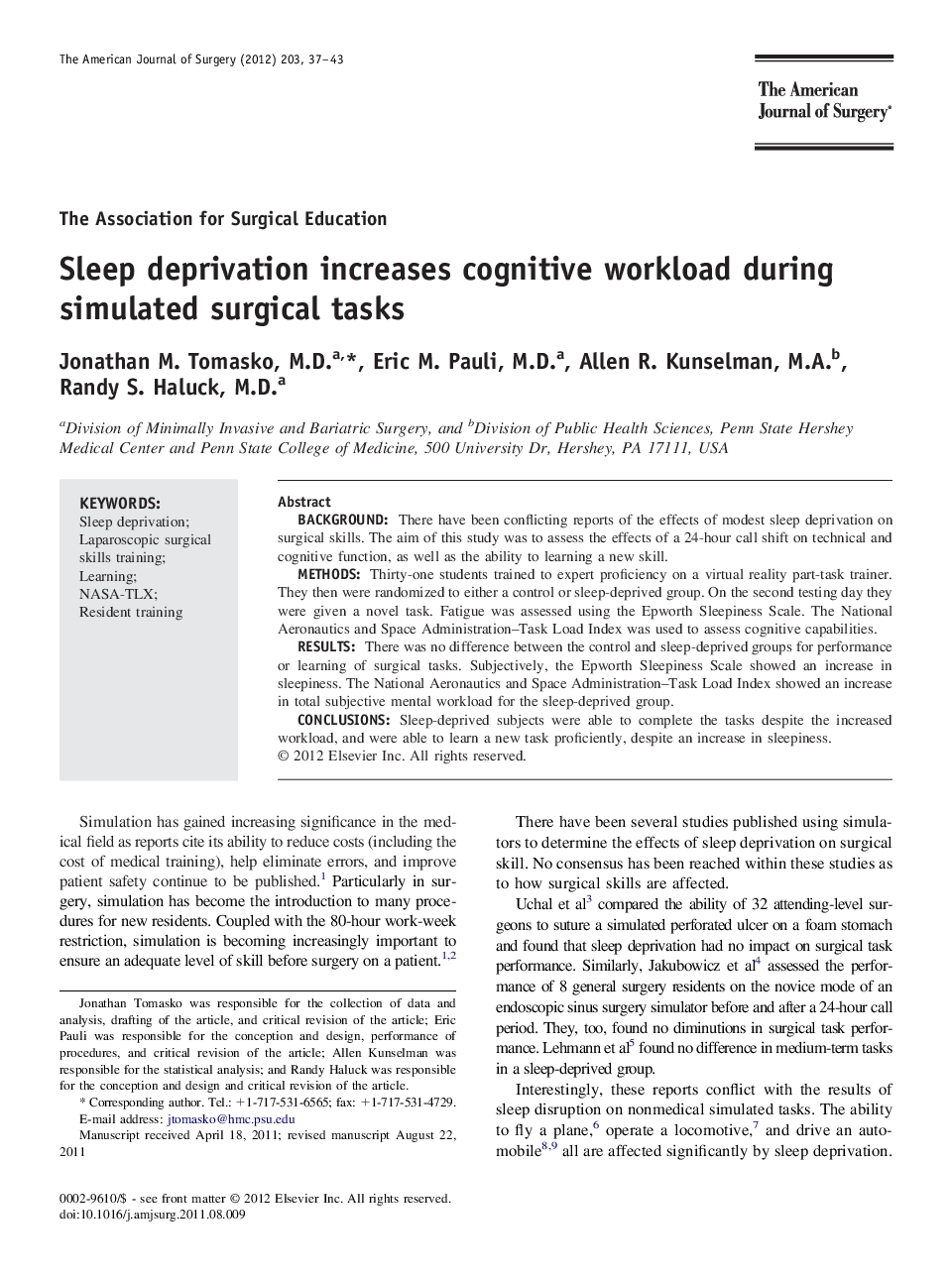| Article ID | Journal | Published Year | Pages | File Type |
|---|---|---|---|---|
| 4279527 | The American Journal of Surgery | 2012 | 7 Pages |
BackgroundThere have been conflicting reports of the effects of modest sleep deprivation on surgical skills. The aim of this study was to assess the effects of a 24-hour call shift on technical and cognitive function, as well as the ability to learning a new skill.MethodsThirty-one students trained to expert proficiency on a virtual reality part-task trainer. They then were randomized to either a control or sleep-deprived group. On the second testing day they were given a novel task. Fatigue was assessed using the Epworth Sleepiness Scale. The National Aeronautics and Space Administration–Task Load Index was used to assess cognitive capabilities.ResultsThere was no difference between the control and sleep-deprived groups for performance or learning of surgical tasks. Subjectively, the Epworth Sleepiness Scale showed an increase in sleepiness. The National Aeronautics and Space Administration–Task Load Index showed an increase in total subjective mental workload for the sleep-deprived group.ConclusionsSleep-deprived subjects were able to complete the tasks despite the increased workload, and were able to learn a new task proficiently, despite an increase in sleepiness.
